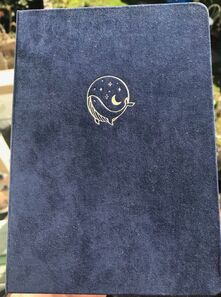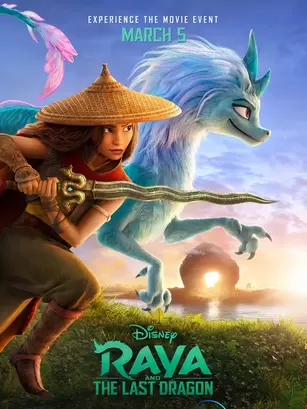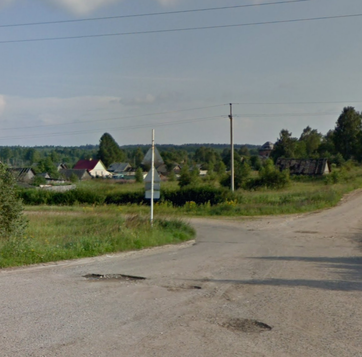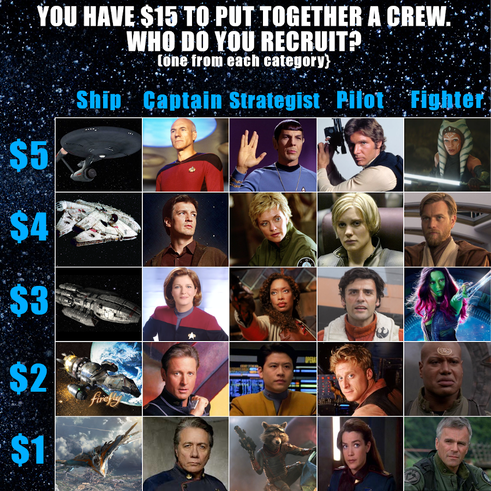Silver Wordsmith: An author's journey |

If my writing projects are any indication, when I’m presented with something shiny I get easily distracted. Apparently the same goes for my bullet journals. I’ve talked about my bullet journaling once in a while – first describing my main bujo and then highlighting some of its specific entries. I had been using my current one for four years, with different logs coming and going, but my writing logs being my favourite ones since they play a large part in my writing tracking and motivation.
Now comes this past Christmas, and my best friend gifts me a gorgeous new bullet journal, with a rich velvety cover.
Naturally, when presented with a new bujo, one must find a way to utilize it immediately (please don’t tell the several pristine journals sitting in my closet), so I decided to break away my writing trackers, and make this new one exclusively a writing bujo. My previous tracker called “10,000 Hours”, which tracks progress per project and ancillary activity, and “Wordsmithing” which is a heat map of daily word counts, will now live in this new journal.
The migration of the two trackers also allows me to switch things up a bit as I start afresh. Here’s the new entry, sadly with no room available for the title:
The main difference with this one is I took this opportunity to expand the number of columns. In my previous bujo, it had to share space with many trackers, whereas here, it would take up the majority of the journal. This gave me the space to add additional columns such as “promotion” which is when I do something that expands my online profile. It also gives me a buffer to be able to add new projects as well, given that I will keep a constant three months per two-page spread ratio. The intent is to be able to use this bujo for a full decade, and I wanted to make sure when I was adapting this tracker that it would be relatively future-proof.
The changes to the Words Per Day tracker is also largely informed by future-proofing. The two major changes here were expanding the number of word ranges represented by separate colours, and changing the colours themselves. The colour changes are relatively self-explanatory, with the added task of making sure each square is more easily identifiable.  One of these squares is allegedly purple One of these squares is allegedly purple
I noticed in the last iteration that the purple blended in with the blue and was nearly impossible to spot. So I played around on the last page of the journal to preview the colour contrast and came up with this new heatmap.
Now here’s where the future-proofing comes in – previously, the highest category was over 2000 words per day and now I’ve split this off into three: 2,000 – 2,999, 3,000 – 4,999 and over 5,000. These new thresholds are very ambitious, considering that I have written over 2,000 words in a day only a couple of times in the last few years. But I intend for this journal to last twelve years, and the fool’s hope is that at some point during this time period I could get to the point where I’m able to occasionally write over 5,000 words in a single day. Thank you for indulging me in my little bujo rant. I hope the few of you that are here because of bullet journal entries enjoyed it. And for the writers out there, if you hadn’t seen my trackers until now, hope some of you have gotten ideas for your own way of tracking productivity.
0 Comments
“The Thorian avoids the stasis pods. But he does sleep.” Boro said. “Looks to me like you missed him by a couple of hours. I suggest next time you steer clear of the drink.” Boro eyed his own, and took a long sip from it. “Now go, get some sleep. It’s going to be lonely and quiet here for the next week with most of the crew in stasis, Lieutenant Guraty and myself included, at least for the next couple of days. Even the Captain’s got a few days off shift, though he generally also avoids the pods.”
They all heard him, but he knew that it was Meslina who was the only one who understood. She finished off her tea, and rose from the table; the other two following suit. “Goodnight, Commander, Lieutenant,” she said. “Night Mez.” Boro gestured at her with his own drink, and soon Boro and Surch were alone as Meeron, taking the hint, left two dinner specials out for them and made himself scarce. “You can order them all into stasis, you know,” Surch suggested when the double doors to the galley stopped swinging after Meeron’s departure. “Why would I need to do something like that?” “I don’t think Intelligence will be very happy if we kill their Thorian.” “Intelligence aren’t the ones having to cart him around.” “The Captain won’t be, either.” “We’ll be fine without him. The way he talks, I don’t understand what his angle is in all this, and I think we’re better off navigating through the Empire without his help. But they won’t kill him either, not with Meslina around.” “She lost her dad in the Last Gasp, never even had a chance to meet him,” Surch reminded Boro as he rolled his empty glass on the table. “I know.” Every file; off by heart. “But I trust her. The worst he’ll get is a few dents to go along with those bumps.” Boro watched Surch’s face, the pilot clenching and unclenching his jaw muscles as he righted his glass again. It had been fifteen years since they graduated and ten years since they’d last seen each other after serving five months together on the starship Astarte. Since then, Surch moved from one non-descript assignment to another, stints that hardly deserved footnotes in a surprisingly bare file – mostly patrols around the periphery of the Outer Rim Confederacy, as far out as the borders of the Adaract Hive. Boro wondered what happened in the meantime that would allow Surch to land a gig like the Forseti and how Surch managed to lose sight of what Boro was struggling against here, despite the long and lonely nature of Surch’s own deployments, and what the two of them experienced when they were cadets. “You remember the Academy, that one Winti who always got the better of you?” Boro asked. Surch rubbed his eyes – dark brown, tired and seemingly looking off into that distant past, and took a deep breath. “How could I forget?” “You were a better pilot, of course, but he knew how to use every quirk of the simulator to his advantage, even if it would have been completely irrelevant in the real world.” Even so many years after graduation, Boro could see that this was more than a little water under the bridge for Surch. “Remember that night when our groups tried to settle it with a brawl?” Surch chuckled and shook his head. “We thought we planned it out so well.” “And yet …” “The Admiral had me doing gravity simulations until I threw up. Then had me clean that up and start over.” “Same. That didn’t solve anything though, did it?” Boro asked and watched whatever smile Surch had drain away from his face. “No.” “Hated each other more than ever. Until that one live exercise.” Surch was frowning, avoiding eye contact. He didn’t need Boro to remind him of where this was going, but Boro pressed on anyway. “You and the Winti were neck-and-neck for the most of it, I was bringing up the rear with a couple of his friends, until one of them had that power failure. I might have clipped their wing, or the other in the Winti’s crew did. We never did figure it out. But we did receive a short burst of a distress call before they cut out. You did too, as did the Winti. We were all within range and were supposed to hold back until help arrived. But we weren’t that far off the finish line. Less than an hour was it? And we assumed the pack would have been bringing up the rear, or at least that the damaged ship wouldn’t drift so far from the course.” Boro paused then, listening to Surch’s even breathing in the dim light of the after-hours galley. There was little left in Boro’s glass, but it was enough. This was for the best. Surch knew it. It was how things have always worked. “Two months in the hospital,” Surch whispered, “and then never returned to the Academy. Never flown again.” “But the rest of us, the ones that stayed on, we were fast friends then, and helped each other succeed instead of getting in each other’s way. Do you see what I’m saying?” “I see more than you know,” Surch answered, putting his palms on the table and pushing himself back in the chair. Boro watched him carefully as the pilot returned the empty glass to the counter, straightened his uniform and gave a small cough. “I tell you this as a friend, Boro. But not all of us recovered as easily as you. Good night.” “You’re not staying for dinner?” “Not hungry.” And with that, Surch Guraty left the galley, and went to put himself in stasis, and Boro was left alone, in a living breathing ship, with the responsibility to keep its lungs fresh and its arteries clear resting solely on his shoulders.
There was a time in my life when the protagonists of my short stories had a worse survival rate than early seasons of Game of Thrones characters. I guess back then it seemed like the most definitive way to end a story arc. Character’s dead, what more do you people want? Just go home. Eventually, I’d moved on beyond this, adding more nuance to my stories. Endings were still a troublesome beast that didn’t come easily, but at least I no longer took the simplest way out.
For this reason, death had become a less prominent feature of my writing, while as I grew older, became a somewhat more prominent feature of my life. So it goes. Other than a few notable exceptions, like the novel that I’m finishing up which does include death in a fairly prominent role (though that could be explained by the fact that I plotted this out years ago), I haven’t had much opportunity to explore the topic until recently. With the ramp up of both my science fiction and fantasy web novels, I’m delving into the kind of adventure whose stakes necessarily involve characters dying. Whether a bandit attack or a starship exploding, someone out there is bound to be caught in the crossfire of plot and meet an untimely end. I don’t know about other writers, though there is the common stereotype that writers enjoy torturing characters and/or their readers, but this exercise brings me no joy. Sure, there’s some satisfaction to putting together an emotionally impactful death, but that’s a feeling detached from the characters themselves. When it comes to the characters, I have a sense of responsibility for the fictional lives I’ve created (perhaps why I might never be as brave as other writers who have no qualms in making the lives of some of their creations a living hell). What I had recently discovered, is that I have particular sympathy for the “red shirt” characters I write. I use the term “red shirt” here in reference to how it’s used in Star Trek fandom – characters that are specifically put into dangerous situations alongside the main cast for the simple reason that their deaths will highlight what a high-stakes situation this is for characters we know will survive no matter what’s thrown at them. I don’t use my red shirts in quite the same blatant way, but sometimes one does need a tragedy with no handy well-established disposable characters to spare. Out come these little side characters, who may be introduced a chapter or two in advance, that I know will need to meet a terrible end in order to advance the plot. I feel terrible for these figments of my imagination. As their writer and creator, I can pull them out of the ether and into existence – give them a family, hopes and dreams, in short, a life. Instead, I’ve nothing to offer them but death. They’re grumpy, or bubbly, or stoic, or cheerful. That’s all the red shirts ever hope to be. The reader gets a glimpse of their personality and then the window is shut. One of my earlier writing idols, Michael Crichton (problematic views on climate change notwithstanding) was a master of these. A new character is introduced in the chapter. Within two pages, you know their sister’s name, their relationship with their father, their entire career trajectory up until that point and their short-term and long-term goals. By page three, they’re stung by a paralyzing octopus and dumped into the bay. I wonder if the author of Jurassic Park and Westworld had similar reservation about dispatching his disposables or if he approached it more coldly and methodically. I also wonder if it would make me feel better or worse do give them more backstory, though perhaps not in the same rapid-fire way that Crichton used to do it. In the meantime, I’ll continue serving them up as sacrificial lambs to the plot, and thanking them profusely for their contributions.
The conversation with the Thorian stayed with Boro during the days that followed. It irked him like benign parasite residing beneath the skull in the back of his head. A new stasis rotation had begun, and with that, half the military crew and most of the civilians went into their pods for a week, scheduled to come out about a day before they reached Yshot Station.
But not the Thorian. He lurked somewhere in the ship, and it bothered Boro to acknowledge that even as second-in-command, he actively avoided the galley to steer clear of their next conversation. Tonight though, after a long bridge shift that ended at an hour when even the Thorian would be sane enough to head to bed, he thought he would be safe. “Want to head up for a bite to eat?” Surch asked. “Meeron said he’s left hot meals to last a few days.” “I hope it’s fish,” Boro answered under his breath. “What’s that?” Surch chuckled. “Never mind.” “Careful there, Boro, who’s going to do all that paperwork once you’ve cracked as well?” Boro tried to laugh, but all he managed was an exhale and to walk slightly less slumped. “Speaking of which,” Surch added, glancing behind his shoulder. “You think Maggie will be okay there all by herself?” “She’ll be fine. She breathes this ship. If anything, she’s better off being plugged in. Without all that data flowing through it, I imagine a mind like hers would get bored pretty fast.” “Must take a weird one to do what she’s doing.” Surch’s voice dropped, even though they were well out of earshot of the bridge by then. “I hear that half of them crack before they’ve had the implants for a full year.” “I hear half of them crack before they even get them.” When they reached the galley, they were surprised to find that Meeron had not in fact turned in, and that he had company to boot. In the dimmed lights of the galley, they could see Meeron pouring three drinks from a dusty bottle full of dark liquid, as the intended recipients sat huddled at a nearby table – Meslina, the Nabak, and Eframe Gonsyn. The little scene froze upon the entry of the two officers. Meslina, who had her back turned to them, let out a resigned sigh. “Commander! Lieutenant!” Meeron started cheerfully, then paused, and in a swift motion downed a drink with one hand and pulled out two more glasses from underneath the counter with the other. “Care to join us?” Boro looked at Surch, who shrugged and said, “Count me in.” Boro took the empty chair next to Meslina and Surch pulled one up from the adjacent table and sat on it backwards, his legs straddling the back of the chair and arms resting over it. Surch maintained a smile while Boro tried to keep his expression cold and level, playing the part of the stern Second-in-Command who’s willing to listen. “So, might I ask what brings you all here at this unsightly hour?” Surch broke the silence after it had lasted for a sufficiently uncomfortable amount of time. Eframe and the Nabak looked at each other, and then at Meslina. Meeron stepped in, placing the drinks in front of everyone but the Comms Officer. Surch gave it a short sniff, and then drank it in one gulp. “And don’t tell me it’s the fine drink. Meeron, do us all a favour, if you’re going to smuggle something on board, could you at least make it good?” “Got some choice things coming our way at Yshot Station, but, uh, you never heard it from me.” In the silence that followed, Meeron returned with a mug of steaming black tea for Meslina, who hovered her nose over the drink and took a deep inhale with her eyes closed. “And I can see that it’s not the lively conversation that’s the draw of the hour either.” Surch moved his gaze from one person to the next, but all three avoided eye contact with both him and Boro. “Hey Meeron,” Surch called, looked down at his drink. “I didn’t say stop.” Meeron nodded and the refill was swiftly delivered. Surch sipped it this time, and looked like he was about to make another attempt to break the ice, when Boro stepped in. “Look, we can pretend that I don’t know everything that happens on this ship, and that I don’t already have a pretty good idea of why you’re here. If I was in your position, I might have been at this table too, who knows. But we’re here now, and we can either continue to avoid talking about why, or we can accept that we’re all on the same team.” Boro laid his hands on the table in front of him, intertwining his fingers. Meslina shrugged slightly, her hands wrapped around her mug, and the Nabak spoke in his gravelly half-growl. “It’s the Thorian.” “Yes, I recall a couple of days ago here you made your feelings about him very clear.” “Any chance I get.” “Get a lot of chances, do you?” “You know how he is, roaming about the ship like it’s his. It’s how his kind treat everything … and everyone.” “Like they treat Nabak?” Boro prompted. “Exactly.” Boro couldn’t tell whether the Nabak was looking directly at him, or taking his cues from Meslina – their species’ eyes were almost entirely black, with little by way of discernible pupils or irises. It made it harder to maintain eye contact than even with the Thorian and his damnable glasses. The dense stubble that covered their entire face and the two vestigial tusks on either side of their mouth made for an ensemble that Boro did not find altogether pleasing. “You know it’s not just about Nabak, Commander.” Meslina paused to take a long sip of her tea and in that time Boro again wondered why she never addressed him by his name. “Not many of the crew are happy about this arrangement.” “Yeah, we’re just the only ones not afraid to show it,” Eframe added. Boro tried to soften the withering look he wanted to give Eframe, which seemed to work, since the engineer’s expression didn’t falter. Surch shifted in his chair, the second drink left unfished before him. “Have any of you actually tried to talk to the guy?” He asked. “I think that’s more of the Commander’s area, isn’t it?” Eframe remarked, while the Nabak let out a grunt that sounded to Boro like a burst of laughter. “Yes, Sivian?” Surch prompted. “I tried once. Not sure what I was expecting. He just listened to me, with that stupid look on his face they all have where they don’t try to hide that they think they’re better than you. And then he said we Nabak should be so lucky that the Thorians got to us before the Hatvan did.” “Charming,” Surch said after clearing his throat. “You were on Nabak during the insurrection?” Boro asked. Every file, he’d read them all, able to recite them all, opening his tablet only to make it seem like he didn’t. He knew the answers before he asked the questions. “No.” The Nabak’s mouth contorted so it looked like all four of his tusks were aimed at a single point just in front of his face. “We escaped to the Mraboran Protectorate during the last exodus, before they really tightened it up. I had family left there though, less now after the Revolution. Even less with the Butcher in charge.” Boro said nothing to this. He let the dark cloak of this silence descend over the table. Soak into all present, especially Surch, who for whatever reason seemed to have some kind of soft spot for the Thorian. Surch finished the remainder of his drink. This was a good sign. 
I’ve noticed that my recent problem with viewing Disney films is that I judge them all against my favourite movie of all time – Moana. So when I look at Raya and the Last Dragon, Disney’s latest animated installment, I put it on a scale of Moana to Not Moana, and find it sitting in the Not Moana category. This oversimplified way of looking at things does this movie no justice. Raya is a really good film, and their best so far since Moana came out almost five years ago.
Her family betrayed and an ancient evil called the Druun released across the land, the princess Raya travels across the desolate landscape in search of Sisu, the last dragon, in the hopes of once and for all vanquishing the Druun from her homeland of Kumandra. Even from the plot synopsis it’s evident that this movie veers in significant ways from the Disney princess formula, something they had been doing more and more drastically in recent installments. One notable difference from pretty much every movie featuring a princess is that this movie was not a musical. A bold move, likely a calculated play for new audiences, but something this Disney fan personally found lacking, especially considering the rich cultural inspirations the movie draws upon. This whole soundtrack issue isn’t exactly helped by the fact that they hired James Newton Howard to score the music for Raya, his previous Disney projects being in the height of Disney’s second dark ages with Dinosaur, Atlantis and Treasure Planet. So while the lack of new earworms may be seen by some as a welcome relief and by me as sorely missed, overall there is a lot to enjoy in Raya. The animation itself is absolutely stunning. From the nightmarish Druun, to the landscapes of Kumandra, to the dragons themselves, everything was etched in gorgeous detail. My only regret is that I hadn’t been able to see it in movie theatres in all of its intended glory. What they do with fabric, water and grass in this movie makes you wonder where animation goes from here. But then again, I myself this marveling at the ocean in Moana and here we are with Raya five years later setting new standards. The outstanding animation also applies to the character design. Raya and Sisu, both in her dragon form and human form (which is basically just an animated Awkwafina with funky hair, something that sounds like it can get really old really fast, but doesn’t) stole the show. Raya felt real, from her hair, to her eyes and to the clothes and weapons, another step in realistic design without crossing into the uncanny valley. Sisu’s face at times gave me strong Nick Wilde from Zootopia vibes but other than that, the dragon was vibrant, elegant and endearing. The supporting cast, too was well-crafted – the characters were original and when they were on screen the eye never tired of seeing them – searching them for new details and appreciating the ones that were already noticed. The formerly united land of Kumandra with its five existing kingdoms of Heart, Fang, Tail, Spine and Talon was also laid out in intricate detail, each landscape coming off as unique but at the same time forming a coherent whole. This though, is where one notices that the scope of the movie is both too grand and too small. The plot moves through the five lands too quickly, not allowing each location to fully shine for the viewers. Similarly, while Raya faces great challenges, her personal growth does not seem to reflect the scale of the adventure when compared to other Disney protagonists. In fact, Namaari, her foil in the film, undergoes more interesting personal challenges. A word also needs to be said about Disney’s latest attempt to inject the much-needed diversity into the films they produce. While I don’t come from any of the cultures represented in Raya, so I can’t comment on how well they’ve done, it’s refreshing to see that others may also find themselves reflected in a movie that so many families and children will end up seeing. Overall, if you’re going to have a family viewing of Raya, or if you’re a hardcore Disney nerd, it’s well worth the $30 price tag. While not one of the undoubtedly strongest entries in their 21st century canon, it is a great reminder that Disney is still there at the forefront of great animation and storytelling.
“Humans are not exactly new to war, Mr. Mikarik,” Boro said pleasantly. It wouldn’t have been the first time he had to sit through a lecture from a member of another species about Humanity’s neophyte status in the Known Reaches, though he preferred when the conversation took place in some dive of a bar with none of his superior officers in earshot and he felt the familiar itch in his knuckles.
Mikarik’s hand, which was carrying another forkful to his mouth, froze for a moment. The spectacle of watching the Thorian eat had lost its novelty and just made Boro lose interest in his own lunch. “Oh, I’m well aware of that,” Mikarik answered. “You’re so efficient at it you nearly wiped yourselves out of existence a couple of thousand years ago.” Boro cocked his head to the side, using a smile to hide what was bubbling on the surface, thinking a sneer was probably the best he was managing “Probably,” he said, allowing his eyes to drift back down to his tablet. “But you’re not exactly career military yourself. That was your first major conflict, and the Mraboran incident was only your what, fifth or sixth engagement?” “I don’t necessarily speak for myself when I talk of experience. I speak for the tradition that raised me, that forged Empires when you were still climbing out of a Dark Ages you sent yourself to.” “And yet here you are,” Boro looked up again and spread his hands in a gesture that meant to encompass the whole ship, “supposedly turning your back on that tradition and betraying the Empire you now defend.” “My relationship with the Empire is my own.” The Thorian lowered his forearms, picked up a generous forkful of fish and stuffed it in his mouth, chewing it with his eyes pinned on Boro through his glasses. “And it’s complicated.” “I have no doubt about that, but that’s not how our Nabak sees it.” “You mean Sivian?” It was that damned ghost of a smile again. “Yes, Sivian,” Boro gritted through his teeth. “No, I don’t think he does.” “Do you think he should?” Boro asked. “I’m sure you’re aware of what happened towards the end of that war.” “I do, but that hardly did nothing to undo what already happened, did it?” Was that really a tinge of regret that Boro saw creep across the Thorian’s face and disappear? Were they even capable of regret? Dr. Sufai might know, or else that Vaparozh xenologist, one of them could shed a light on whether he was only seeing things, but in any case, the Thorian had no answer so Boro pressed on. “The Mraboran have likely not forgotten.” “Good thing we don’t have any Mraboran on board,” the Thorian remarked. “But we do have a Nabak.” “I noticed.” “As I’m sure you’ve noticed how the rest of the crew act around you.” “Is there a point to all this, Commander?” The Thorian asked with a deep sigh and a long look at his plate. “Because between this conversation and the revolting fish, I’d sooner focus on my lunch.” “Mr. Mikarik, I’m in a delicate position.” Boro dropped his voice. “I’ve got a Comms Officer, a very capable experienced officer, unable to take some sporty ribbing from my ship’s steward. I’ve got a civilian Head Engineer who’s having a hard time working with my Techever. I’ve got maintenance crew showing up in medbay because of a game of cards, and above all,” Boro looked around and leaned in conspiratorially, “there’s a Captain who is so focused on the smooth operations of the bridge that he believes that the rest of the ship is running as smoothly.” “But you know what they all have in common, Mr. Mikarik?” Boro relaxed back into his chair, making sure to project his next sentence. “None of them particularly like that there’s a Thorian on board. You’re not in a great position either, and maybe that was my mistake. Maybe that’s how I failed my crew. I made you feel too comfortable. We’re barely one week out of Yshot Station, and you’ll gain access to the only place on the ship that’s so far been free of your presence. There’s a Captain there who might be tempted to make the same mistakes I have. And I’ll be there to make sure that he doesn’t. I just wanted you to know that before it becomes a problem between the two of us.” He gave the Thorian a purposefully fake smile, and rose from the table. “As you said, I should let you return to your lunch. Enjoy.” The Thorian watched him as Boro tucked in his chair, pocketed his tablet and then turned his back to place his empty dishes on the kitchen counter. Only then did the Thorian call out to him, in his cold voice that often gave Boro an uncomfortable tickling sensation behind his ears. “Commander.” Boro turned around, saying nothing. “That’s not entirely true though, is it?” The Thorian continued. “There’s one person that doesn’t mind that I’m on board. Someone who’s quite pleased with the fact that they have a handy excuse in their arsenal, and can blame all their personal failings on the Thorian.” This time, before he turned to leave, Boro was sure that it was, in fact, a smile.  Never realized how much I miss birch until revisiting this highway from Moscow to Tver. Copyright: Google Never realized how much I miss birch until revisiting this highway from Moscow to Tver. Copyright: Google
A few months ago, I came on here to extoll the virtues of bolstering your writing with Google Street View – sinking into the locales you want to write about without having to actually be present there. I also said that there are limitations to this method, as one never quite gets the feel for a place through static images. In my case, I had been using it for walkabouts of Moscow and reminding myself of places I hadn’t visited in more than twenty years, using Street View more to document changes and to jog my memories.
The plot of the same novel that required descriptions of Moscow has now moved beyond the city limits, following the route from the city to the remote village in the Russian countryside where my great grandfather spent the last years of his life. I’ve been using Google Street View to not only reconstruct the actual route there (I remembered certain population centres along the way, but would not have been actually able to wayfinding without technological assistance) but also to take snapshots of what it looked like along the way in order to provide richer descriptions. I’m not entirely sure yet how this will shake out in a final draft – creating a detailed play-by-play of a four-hundred kilometre drive through the countryside may work in a different kind of novel, but in this book, it would just grind the pace to a halt. So what I had been doing initially is retracing the route, noting anything interesting, then combining the snapshots into single descriptions – sometimes from two or three locations at a time – and then throwing these into my first draft. The goal would then to go through it during an edit and then try to strike that balance between not overburdening the reader and providing the right kind of description and atmosphere that I want to invoke.  If it was up to me, I'd described every square inch of this photo. Copyright: Google If it was up to me, I'd described every square inch of this photo. Copyright: Google
This is a perfect illustration of why I’m glad I ditched editing-on-the-go. It would be such a waste of time to figure this out without the context of seeing how it fits in the overall work and how it affects the overall flow. Before, I would make sure to clean up the descriptions into a neat few paragraphs before moving on – and then probably having to go through it again on subsequent edits.
Not to say that I’ve completely embraced unfiltered verbal spew. This was never the ultimate goal and in the end I think would make the editing process a bit overwhelming. So there’s still sometimes dialogue or descriptions that I polish off to a certain degree of satisfaction before including them even in the first draft. But generally throwing words down and moving on is so liberating. The trip through the Russian countryside presented an additional challenge that I should have expected. The country retreat, if it can be described like that when there was no central heating or plumbing, as close to rustic living as one could get in 90s Russia, is the one thing I’m so nostalgic for about Russia that it almost manifests in physical pain if I think about it too much. It occupies such a dear place in my heart that I’ve had nightmares of finding it demolished, or more absurdly, replaced with a theme park. For this reason, the choice to set part of my novel in the village of Komkino is an exercise in self-torture.  If this was Komkino, I would have to clear my schedule to weep. Copyright: Google If this was Komkino, I would have to clear my schedule to weep. Copyright: Google
Whether it’s the birch forests, the quaint villages of no more than two dozen houses made of dark grey wood, or rutted muddy country roads, each is a small piece of my childhood that now seems unreachable. I know the area has changed in the twenty years since I’ve been there. More and more homes are being converted to dachas, pushing out the year-round residents, who are likely coalescing in the towns. In a way, I’m fortunate that the village itself and its immediate surroundings aren’t actually available in Street View, otherwise I would have spent hours examining every square inch of familiar locations or else find myself awash in heartache at seeing what’s different.
Best I can hope from this exercise is to use Street View to augment my own memories and present to the reader a slice of a place that is very important to me. Whether it will seem like an unnecessary detour in the novel remains to be seen.
The Thorian, who stood just inside the galley door, eyed the three approaching crewmembers with some interest, and perhaps expected what was coming. From where Boro was sitting, it was hard to truly discern the Thorian’s expression behind the glasses that shielded his eyes from lights that had been attuned to the brightness of Humanity’s homeworld. The Nabak took first honours – built like a boar and with an ugly mug to match – the Thorian had more than a foot on him but still took a broad shoulder into the kidney, or whatever Thorian equivalent resided in that part of the abdomen. Eframe followed in close second, this time jostling the Thorian shoulder-to-shoulder. Boro thought that Meslina would opt for something more creative but she repeated Eframe’s gesture, the Thorian swaying back with each collision like a jammed revolving door.
It was juvenile stuff, reminiscent of how cadets elbowed within the pecking order at the Academy. Boro’s only regret was that Surch had just stepped out and missed it. Boro had always heard that a Thorian’s forehead horns, though more akin to mere bumps, did something funny when they were steamed. Unfortunately, it didn’t seem like Boro or the others remaining in the galley were in for any sort of show. The Thorian attempted to discretely take a deep breath, straightened his shirt, and approached the counter of Meeron’s kitchen. “What do you have for me today, Meeron?” The Thorian asked, propping his elbows up on the counter. Meeron stood with his arms crossed for a moment, chewing on his lip, and then responded, his colonial accent sounding thicker than normal. “Only fish.” The Thorian gave him a tight-lipped smile and surveyed the room without moving his elbows. There were only two fish dishes in the place, while the rest ate salad, or chicken or some packaged protein paste that may once upon a time have contained a certain percentage of a cow. He turned back to Meeron, who shrugged. “Then fish it is.” When the Thorian turned around after receiving his fish portion, notably with no sides, Boro flagged him down with a curt wave. “Mr. Mikarik,” Boro greeted him as the Thorian lowered himself into the chair across from Boro. Early on in their journey, Mikarik insisted that there was no “Mister” or anything of the sort attaching to Thorian names, but eventually gave up on the corrections. “Commander,” the Thorian answered, poking at the fish with his fork. “Take it you’re not a big fan of fish?” “Not particularly. It’s far too …” “Fishy?” Boro suggested. “Yes, I suppose for lack of a better word. We’re not exactly keen on sea food. Especially the little ones, so this is a learning experience for me.” “In that case, here’s to learning experiences,” Boro said, lifting up his own forkful of flaky white meat, and after swallowing, continued. “So, I’ve been reading your file.” “A solid indicator that it's about time you put yourself in stasis.” Boro forced a laugh. “Yes, true maybe. You’ve flown during the Nabak Insurrection, haven’t you?” “That’s what I like about you, Commander, never afraid to go straight to the point.” “Should I be afraid?” “Not at all. But I think maybe there’s reason for me to be?” It annoyed Boro that he couldn’t tell whether the Thorian was smiling or not. Pretty much every sentient species smiled, a quirk of convergent evolution that seemed to be in ample supply in the Known Reaches. The Thorians that he chanced to meet though, were not as generous with the expression, and this one in particular seemed to always have his lips curled slightly to confuse Boro’s Human-adjusted eyes. More to avoid the Thorian’s expression than to refresh his memory, Boro picked up his personal computer tablet and, selecting a conveniently located shortcut, pulled up Mikarik’s file. “You’ve seven confirmed fighter-to-fighter kills during that campaign,” Boro said, without lifting his eyes, and getting some satisfaction in the Thorian making the slightest move to try to read the tablet from where he was sitting. “I’m a decent pilot.” The Thorian leaned back in his chair. “And a decent shot it seems.” If a single Thorian possessed an ego outside whatever collective selfishness drove the species, Boro thought that he could see it behind the tint of Mikarik’s glasses and around the corners of his mouth. “If I recall, you’ve also distinguished yourself in operations that took down three larger vessels, one of which was …” The sparkle of pleasure and faint smile vacated the Thorian’s face, and instead took residence on Boro’s. “A Mraboran humanitarian ship, was it?” After a moment, Mikarik put his elbows on the table, the sides of his arms facing forward, and his hands clasped under his chin. “Have you ever been in a battle, Commander? I mean a real battle. Not a training exercise, or hanging back on the sidelines while two heavy ships engage in nothing more than a cursory exchange of fire just so they can report back to their superiors that they tried? Your father has. I’ve heard of him. Captain Avanthy Stevin? Admiral by now, I gather. Probably the only Human of note that I’d heard of until your friends from Intelligence picked me up on Kargoosh. But beyond that, Humanity is young, and small, and in all fairness, ambitious, but it’s inexperienced and is hardly in a position to criticize a power like the Empire on the conduct of war.”
Sometime last week I happened to come across one of those “You have $15 to do X. Who do you choose?” graphics where it lists a bunch of things/people at $5/$4/$3/$2/$1 costs and you share how you would put together whatever “X” is. For “X”, I’ve seen everything from music festival lineups to sports teams to your ideal Marvel superhero team-up. So seeing these, I wanted to put together my own, and inspired mostly by how hard I’ve been writing my space opera web fiction recently, came up with this Pick Your Own Space Crew graphic:
First choice I made was confining selections to one from each category. These are a less common variant, and I’ve mostly seen this with putting together sports teams (confining the choices to one per position). However, since I’m pushing for an actual crew here, and wanted to include ships as well as people, I thought this would be the best way to present.
Second, I needed to figure out what franchises to dip into. On the one hand, I wanted to keep it accessible, on the other hand, other than Star Trek and Star Wars (and Guardians of the Galaxy, if you can really put it in the same category) sci-fi doesn’t exactly have a wide audience. So I dipped into things somewhat more obscure including Battlestar Galactica, which, I’m going to go ahead and admit right now at the risk of excommunication, I haven’t actually seen, though of course heard a lot about. Also I think given that I have four individuals from Star Trek and two of them are from Voyager, its easy to tell which television series was the first one our whole family got into when we moved to Canada. Third, and it’s not like I hadn’t already known this, but man does sci-fi have a diversity problem. There’s been some improvement in this area recently. Star Wars is making some strides, though the abysmal treatment of John Boyega proves there’s a whole lot of work that needs to be done on that front. I also hear Star Trek: Discovery is great and it’s been on my “want to watch” list for a while. But overall, and especially with the most culturally prominent roles and characters, this is an area that is still predominantly white and male. I tried to push back against this with how I organized my graphic, and I probably could have done a better job of it but the limited material was challenging to work with. This is one of the major reasons I try to break this trend with my own writing, but as with any aspiring writer the odds of me ever making any kind of cultural impact are pretty slim. Here’s hoping though. In addition to the difficulties created by the diversity problem I just described, generally picking and organizing what was included in the graphic was not a straightforward task. I wanted to represent multiple franchises without spreading myself too thin, which worked to an extent. I expect few people to actually recognize John Sheridan and Susan Ivanova from Babylon 5, but it being my favourite sci-fi show, I couldn’t resist. Then once the actual elements have been selected, picking which cost categories they go into was its own challenge. The entire $5 tier is Star Trek and Star Wars. Is it really because I think these are worth the theoretical $5 or because that’s what I think other people will value them as? It was a little bit of both, which is why the lesser known franchises occupy the lower tiers, sometimes unfairly. Is Han really a better pilot than Po? Definitely not. But rank the original fan favourite below the new guy, all hell will break loose. Or in the case of Serenity – it literally has no weapons, but at the same time it’s a far more iconic vessel than the Milano, even though more people have seen the Milano in action than Serenity. Will a million offended fanboys tell me that Obi Wan should rank higher than Ahsoka? Probably. But Ahsoka is my favourite lightsaber duelist in the whole franchise, and I’ll die on that hill. There’s definitely places where I could have been braver putting this together. But overall it as just something fun to do while watching TV, so it is what it is. And if anyone’s interested, my selection would be: Captain Janeway, Harry Kim, Ivanova and Ahsoka on the Millennium Falcon. Drop a comment to let me know who you would be choosing. |
Michael SerebriakovMichael is a husband, father of three, lawyer, writer, and looking for that first big leap into publishing. All opinions are author's own. StoriesUrsa Major Categories
All
Archives
January 2024
|
Proudly powered by Weebly





 RSS Feed
RSS Feed